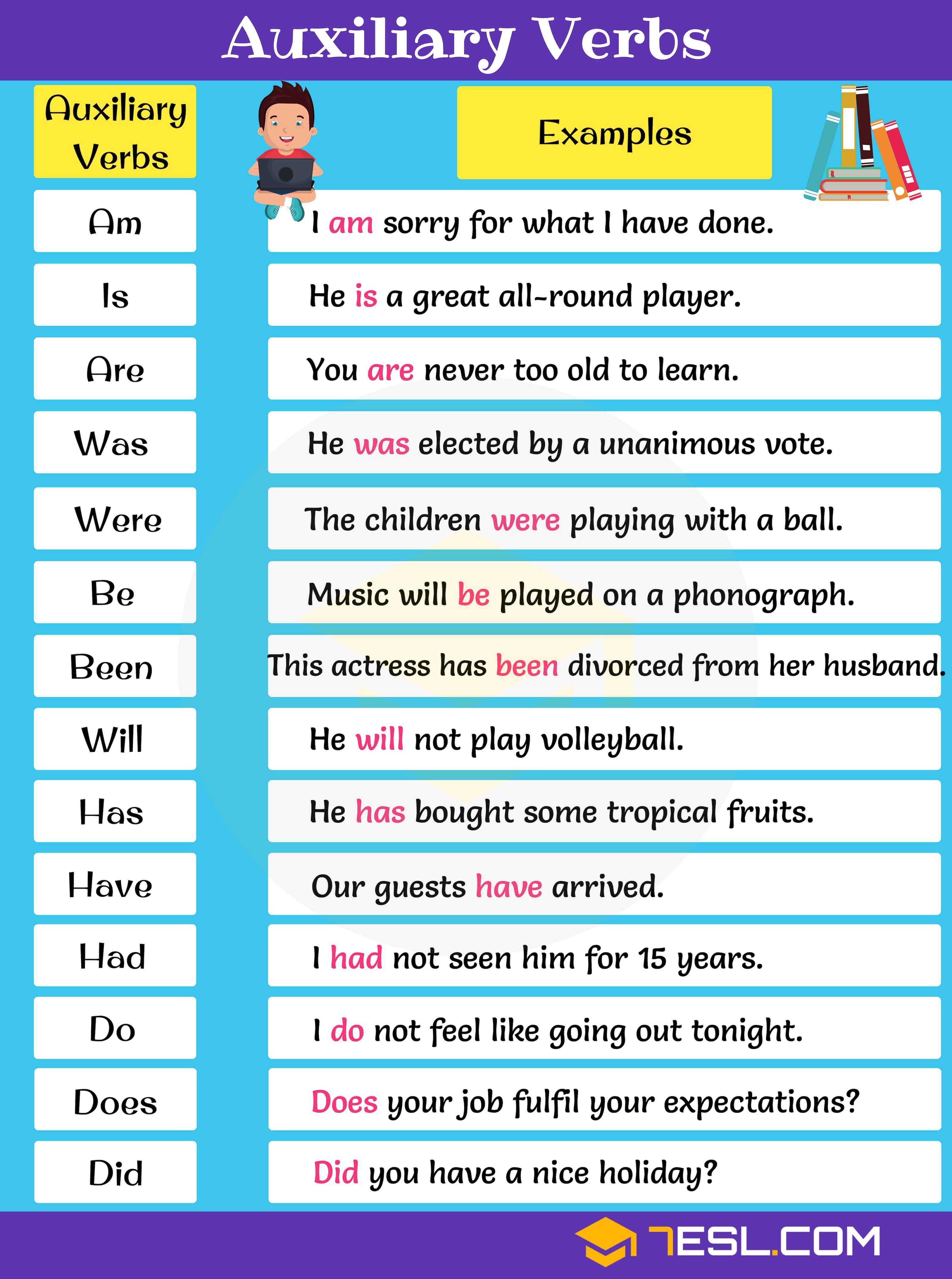

My dog enjoyed the drive immensely, and so did I.Ī small group of auxiliary verbs, called the modal verbs (or modal auxiliary verbs, modal auxiliaries, or simply modals) are only used in combination with ordinary verbs. I do think I'll be able to find my way without a problem.ĭo may also substitute for another verb that has just been stated: In this use, do is followed by an infinitive without to: (passive voice)ĭo occurs as an auxiliary verb mainly in negative sentences and in questions:ĭo is also occasionally used for emphasis. ( future perfect progressive)īe is also used in the passive voice, and to join infinitives plus to to the subject of a sentence or clause: I will have been traveling for three weeks by the time I return. I will be driving across much of the country. ( imperfect tense, also called past progressive)

(future perfect progressive)īe is used to form all the progressive tenses, the tenses that are used to refer to an action or state that is continuing to happen: I will have packed everything by the time you arrive. I had packed my suitcase the night before.

Have is used to form all the perfect tenses, the tenses that are used to refer to an action or state that is completed at the time of speaking or at a time spoken of: The auxiliary verbs (which include be, have, do, and the modal verbs like may, shall, will, can, and must) combine with verbs to do things like show a verb's tense or form a question.īe, have, and do are used as both independent verbs and as auxiliary verbs. An auxiliary verb, also called a helping verb, is a verb that is used with another verb (or two other verbs) in a verb phrase.


 0 kommentar(er)
0 kommentar(er)
